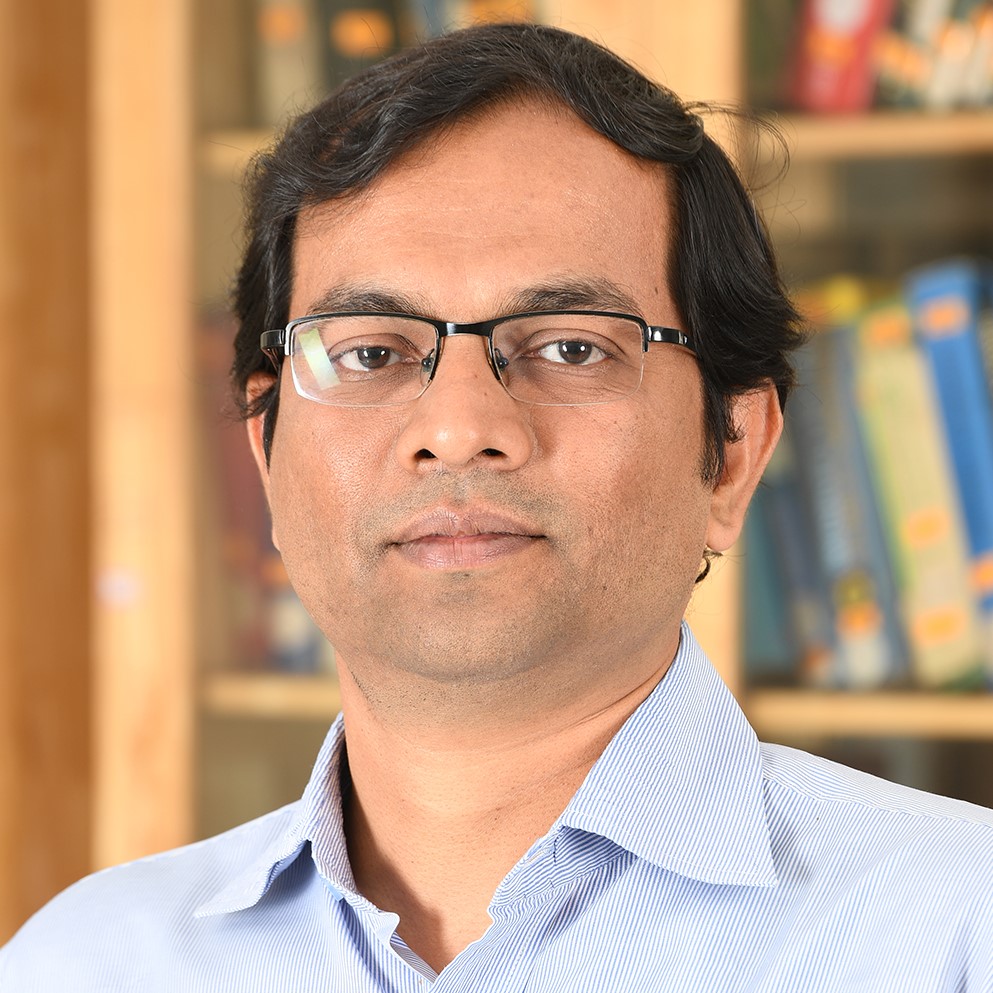 IISc researchers help develop math model to predict COVID-19 vaccine efficacy
IISc researchers help develop math model to predict COVID-19 vaccine efficacy
![]() Researchers at the Indian Institute of Science and Queensland Brain Institute in Australia
have developed a mathematical model that predicts how antibodies generated by COVID-19 vaccines confer protection against symptomatic infections.
Researchers at the Indian Institute of Science and Queensland Brain Institute in Australia
have developed a mathematical model that predicts how antibodies generated by COVID-19 vaccines confer protection against symptomatic infections.
Read more ...
 Testing hypotheses to guide COVID-19 vaccine, booster protocols
Testing hypotheses to guide COVID-19 vaccine, booster protocols
![]() The efficacy of COVID-19 vaccines depends in a complex way on the strength of the prime doses and the time interval between the prime doses and the booster shots.
A computer simulation study carried out by researchers at Indian Institute of Science, Bengaluru (IISc) attempts to understand how this works.
The efficacy of COVID-19 vaccines depends in a complex way on the strength of the prime doses and the time interval between the prime doses and the booster shots.
A computer simulation study carried out by researchers at Indian Institute of Science, Bengaluru (IISc) attempts to understand how this works.
Read more ...
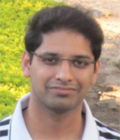 IISc team inches closer to cracking the test
IISc team inches closer to cracking the test
![]() A team of researchers from the Indian Institute of Science is among the 219 teams selected for
the semi-final round of
$1 -million XPRIZE Rapid Covid Testing competition.
The team named Ubiquitous Diagnostics, led by Dr Bhushan J Toley, assistant professor,
Department of Chemical Engineering IISc has developed a PCR-free SARS-CoV-2 RNA detection test,
which has been shortlisted for the semi-final round of the XPRIZE Rapid Covid Testing competition
A team of researchers from the Indian Institute of Science is among the 219 teams selected for
the semi-final round of
$1 -million XPRIZE Rapid Covid Testing competition.
The team named Ubiquitous Diagnostics, led by Dr Bhushan J Toley, assistant professor,
Department of Chemical Engineering IISc has developed a PCR-free SARS-CoV-2 RNA detection test,
which has been shortlisted for the semi-final round of the XPRIZE Rapid Covid Testing competition
Read more ...
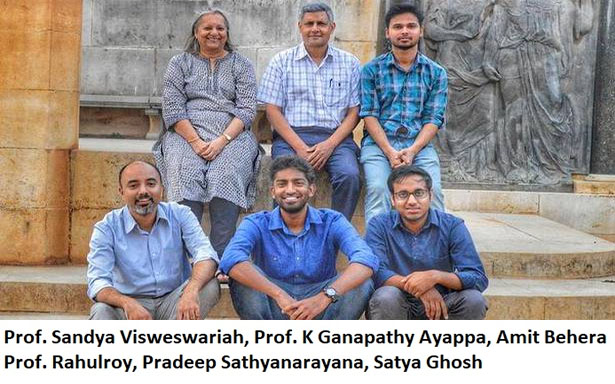 IISc researchers find cholesterol helps bacterial toxins kill cells
IISc researchers find cholesterol helps bacterial toxins kill cells
Researchers at the Indian Institute of Science (IISc), Bengaluru, have found that cholesterol
present in
cell membrane plays a crucial role in stabilising and binding together the pore-forming toxin cytolysin
A. The pore-forming toxins form the largest class of bacterial proteins causing virulence that kills
human cells. The cytolysin A toxin is secreted by E. coli, Shigella and Salmonella.
Read more ...
 $100,000 grant from Gates Foundation (2017)
$100,000 grant from Gates Foundation (2017)
![]() Funds will help Bhushan Toley develop technology that could improve diagnosis of infectious diseases
An assistant professor of the Indian Institute of Science (IISc) has won a Grand Challenges Exploration grant of
$100,000, funded by Bill and Melinda Gates Foundation.
Funds will help Bhushan Toley develop technology that could improve diagnosis of infectious diseases
An assistant professor of the Indian Institute of Science (IISc) has won a Grand Challenges Exploration grant of
$100,000, funded by Bill and Melinda Gates Foundation.
Read more ...
 A new combination of drugs for combating hepatitis C (2017)
A new combination of drugs for combating hepatitis C (2017)
![]() Drugs that prevent entry of the Hepatitis C virus (HCV) into the host cells are equally effective as other drugs, finds a
new study from the Indian Institute of Science (IISc), Bengaluru, published recently in the Proceedings of the National
Academy of Sciences (The Hindu).
Drugs that prevent entry of the Hepatitis C virus (HCV) into the host cells are equally effective as other drugs, finds a
new study from the Indian Institute of Science (IISc), Bengaluru, published recently in the Proceedings of the National
Academy of Sciences (The Hindu).
Read more ...
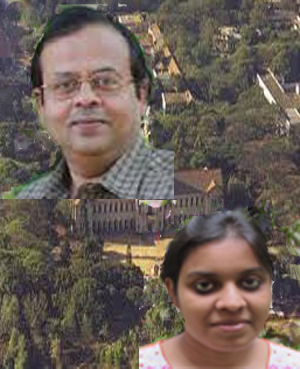 Cheaper, more plentiful light could clean lakes (2016)
Cheaper, more plentiful light could clean lakes (2016)
![]() A visible light that is more cost- and energy-efficient than UV light can be used
to disinfect water on a large scale, according to the new research conducted by
Indian Institute of Science. Currently a lab-experiment, the team plans to scale
it up for field-level work (Indian Express).
A visible light that is more cost- and energy-efficient than UV light can be used
to disinfect water on a large scale, according to the new research conducted by
Indian Institute of Science. Currently a lab-experiment, the team plans to scale
it up for field-level work (Indian Express).
Read more ...
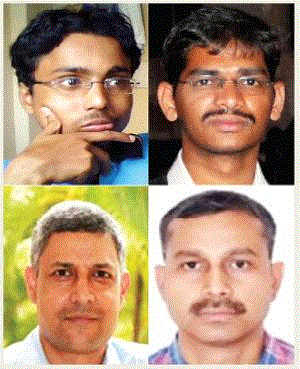 IISc team moots alternative to antibiotic resistant infections (2016)
IISc team moots alternative to antibiotic resistant infections (2016)
![]() Stating that antibiotic resistant bacterial strains have given rise to the so called
'superbug', which cannot be treated by known antibiotics, resulting in infections that
are often fatal, professors at the Indian Institute of Science (IISc), Bangalore, have
found a novel way of combating such bacteria (Bangalore Mirror).
Stating that antibiotic resistant bacterial strains have given rise to the so called
'superbug', which cannot be treated by known antibiotics, resulting in infections that
are often fatal, professors at the Indian Institute of Science (IISc), Bangalore, have
found a novel way of combating such bacteria (Bangalore Mirror).
Read more ...
 Drugs used in tandem can beat Hepatitis C (2015)
Drugs used in tandem can beat Hepatitis C (2015)
 Hepatitis C is a severe liver disease affecting more than 130 million people
globally, but has no prventive vaccine. Indian Institute of Science team
has shown that two different types of antiviral drugs can be used in tandem
to treat dreaded disease (Bangalore Mirror).
Hepatitis C is a severe liver disease affecting more than 130 million people
globally, but has no prventive vaccine. Indian Institute of Science team
has shown that two different types of antiviral drugs can be used in tandem
to treat dreaded disease (Bangalore Mirror).
Read more ...
 A new test for organic food (2014)
A new test for organic food (2014)
 How often have you wondered the organic food stacked on supermarket shelves really is organically grown? It would
be nice if we had a device that would be able to tell us whether the fruits and vegetables we are buying are really
pesticide free or whether the supposedly orgainc meat carries traces of antibiotics.
How often have you wondered the organic food stacked on supermarket shelves really is organically grown? It would
be nice if we had a device that would be able to tell us whether the fruits and vegetables we are buying are really
pesticide free or whether the supposedly orgainc meat carries traces of antibiotics.
Read more ...
 IISc duo unlock mystery of failed HCV treatments (2014)
IISc duo unlock mystery of failed HCV treatments (2014)
 Hepatitis C, an infectious disease that affects the liver, is caused by the Hepatitis
C virus (HCV). About 200 million people are infected with the virus worldwide and over
10 million of them are from India. Currently, the most common treatment for the infection is a
combination of interferon and ribavirin. However, only about 50% of
patients respond to this treatment. Why the treatment fails was not well understood,
untilnow.
(
Indian Bioscience )
Hepatitis C, an infectious disease that affects the liver, is caused by the Hepatitis
C virus (HCV). About 200 million people are infected with the virus worldwide and over
10 million of them are from India. Currently, the most common treatment for the infection is a
combination of interferon and ribavirin. However, only about 50% of
patients respond to this treatment. Why the treatment fails was not well understood,
untilnow.
(
Indian Bioscience )
Read more ...
 Green Nanotechnology
Green Nanotechnology
 Prof. S. Venugopal's lab new work on using developing fast and
reliable green reagents based nanoparticle synthesis approach
was highlighted in Deccan Herald School Edition (01/12/2009).
PhD student Sankar Kalidas Sivaraman's working with Venugopal
showed how tannic acid can be used to achieve continuous flow
synthesis of silver nanoparticles.
Prof. S. Venugopal's lab new work on using developing fast and
reliable green reagents based nanoparticle synthesis approach
was highlighted in Deccan Herald School Edition (01/12/2009).
PhD student Sankar Kalidas Sivaraman's working with Venugopal
showed how tannic acid can be used to achieve continuous flow
synthesis of silver nanoparticles.
Read more ...
 Bio-safety mask with activated carbon
Bio-safety mask with activated carbon
Dr. Mudakavi work with activated carbon fiber mask were
highlighted in
Indian Express for its high capacity and
efficacy to remove micro, macro and nano pollutants from the
air.
Read more ...
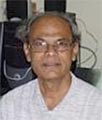 Godrej Lifetime Achievement Award 2011
Godrej Lifetime Achievement Award 2011
Prof. KS Gandhi wins the B.P. Godrej Life time achievement award
of Indian Institute of Chemical Engineers, 2011. This award
was established by the Godrej Industries for recognizing the
service of individuals to the Chemical Engineering Technology and Industry.
Read more ...

 Bio-safety mask with activated carbon
Bio-safety mask with activated carbon Godrej Lifetime Achievement Award 2011
Godrej Lifetime Achievement Award 2011 IISc researchers help develop math model to predict COVID-19 vaccine efficacy
IISc researchers help develop math model to predict COVID-19 vaccine efficacy  IISc team inches closer to cracking the test
IISc team inches closer to cracking the test  IISc researchers find cholesterol helps bacterial toxins kill cells
IISc researchers find cholesterol helps bacterial toxins kill cells  A new combination of drugs for combating hepatitis C (2017)
A new combination of drugs for combating hepatitis C (2017)  Cheaper, more plentiful light could clean lakes (2016)
Cheaper, more plentiful light could clean lakes (2016)  IISc team moots alternative to antibiotic resistant infections (2016)
IISc team moots alternative to antibiotic resistant infections (2016)  Drugs used in tandem can beat Hepatitis C (2015)
Drugs used in tandem can beat Hepatitis C (2015)  Hepatitis C is a severe liver disease affecting more than 130 million people
globally, but has no prventive vaccine. Indian Institute of Science team
has shown that two different types of antiviral drugs can be used in tandem
to treat dreaded disease (Bangalore Mirror).
Hepatitis C is a severe liver disease affecting more than 130 million people
globally, but has no prventive vaccine. Indian Institute of Science team
has shown that two different types of antiviral drugs can be used in tandem
to treat dreaded disease (Bangalore Mirror).
 A new test for organic food (2014)
A new test for organic food (2014)  How often have you wondered the organic food stacked on supermarket shelves really is organically grown? It would
be nice if we had a device that would be able to tell us whether the fruits and vegetables we are buying are really
pesticide free or whether the supposedly orgainc meat carries traces of antibiotics.
How often have you wondered the organic food stacked on supermarket shelves really is organically grown? It would
be nice if we had a device that would be able to tell us whether the fruits and vegetables we are buying are really
pesticide free or whether the supposedly orgainc meat carries traces of antibiotics.
 Hepatitis C, an infectious disease that affects the liver, is caused by the Hepatitis
C virus (HCV). About 200 million people are infected with the virus worldwide and over
10 million of them are from India. Currently, the most common treatment for the infection is a
combination of interferon and ribavirin. However, only about 50% of
patients respond to this treatment. Why the treatment fails was not well understood,
untilnow.
(
Hepatitis C, an infectious disease that affects the liver, is caused by the Hepatitis
C virus (HCV). About 200 million people are infected with the virus worldwide and over
10 million of them are from India. Currently, the most common treatment for the infection is a
combination of interferon and ribavirin. However, only about 50% of
patients respond to this treatment. Why the treatment fails was not well understood,
untilnow.
( Green Nanotechnology
Green Nanotechnology Prof. S. Venugopal's lab new work on using developing fast and
reliable green reagents based nanoparticle synthesis approach
was highlighted in Deccan Herald School Edition (01/12/2009).
PhD student Sankar Kalidas Sivaraman's working with Venugopal
showed how tannic acid can be used to achieve continuous flow
synthesis of silver nanoparticles.
Prof. S. Venugopal's lab new work on using developing fast and
reliable green reagents based nanoparticle synthesis approach
was highlighted in Deccan Herald School Edition (01/12/2009).
PhD student Sankar Kalidas Sivaraman's working with Venugopal
showed how tannic acid can be used to achieve continuous flow
synthesis of silver nanoparticles.